
Medicinal herbs are natural remedies with a rich history, offering versatile solutions for health and wellness․ Explore their benefits, safety, and responsible use with professional guidance․
What Are Medicinal Herbs?
Medicinal herbs are plants or plant parts valued for their therapeutic properties and used to promote health and wellness․ These natural remedies have been utilized for centuries in various forms, including teas, tinctures, and salves․ Herbs like turmeric, ginger, and echinacea are renowned for their anti-inflammatory, digestive, and immune-boosting effects․ Unlike pharmaceuticals, herbs often work holistically, addressing multiple health aspects․ However, their quality and safety can vary, making it essential to source them from trusted suppliers․ While they are not FDA-approved drugs, many herbs have been studied for their potential benefits, offering a natural alternative for preventing or managing ailments․ Always consult a healthcare provider before using medicinal herbs, especially with other medications․
Historical Use of Medicinal Herbs
Medicinal herbs have been used for centuries in ancient civilizations, including Egypt, China, and India, where they were integral to traditional healing practices․ The Egyptians documented herbal remedies in medical texts like the Ebers Papyrus, while Ayurveda and Traditional Chinese Medicine (TCM) developed comprehensive systems for using plants to balance health․ Herbs were often prepared as teas, poultices, or tinctures, with their properties passed down through generations․ These ancient practices laid the foundation for modern herbal medicine, emphasizing natural and holistic approaches to wellness․ Historical records highlight the enduring value of medicinal herbs in promoting health and treating ailments across cultures and time․
Modern Applications of Herbal Medicine
Today, herbal medicine is integrated into various healthcare systems, offering natural solutions for diverse health concerns․ Modern research validates the efficacy of herbs like turmeric, ginger, and echinacea, which are widely used for inflammation, digestion, and immunity․ Herbal supplements are regulated by agencies such as the FDA, ensuring safety and quality․ Advances in technology enable standardized extracts, enhancing potency and consistency․ Herbal remedies are also adapted into contemporary products, including capsules, teas, and salves․ Additionally, herbalism is embraced in holistic practices, emphasizing preventive care and wellness․ This blend of tradition and innovation makes herbal medicine a dynamic and accessible option for modern health management․
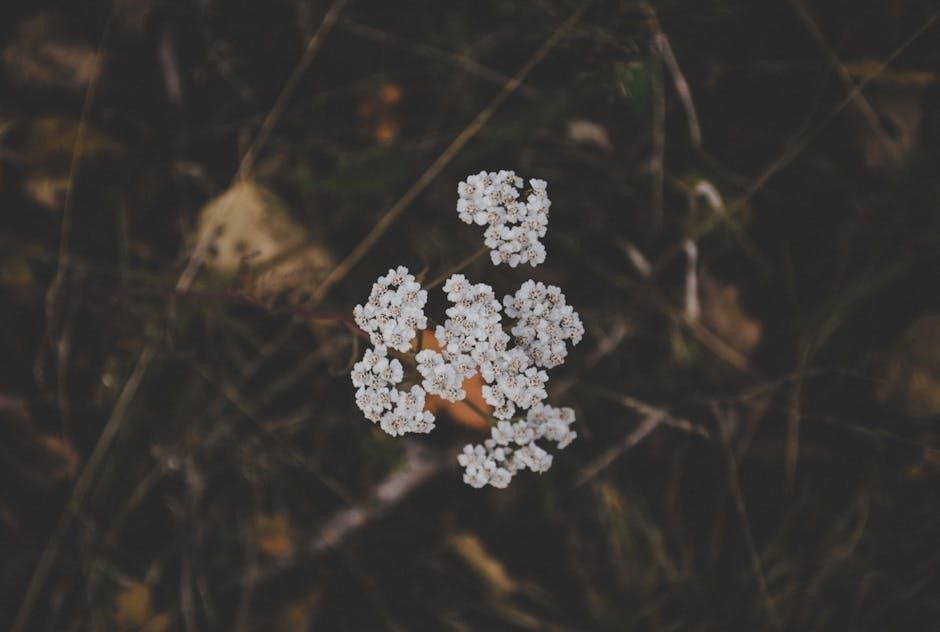
The History of Herbal Medicine
Herbal medicine traces its roots to ancient civilizations, with traditional systems like Ayurveda and TCM utilizing plants for healing․ Its evolution in the West reflects cultural exchanges and scientific advancements․
Ancient Civilizations and Their Use of Herbs
Ancient civilizations laid the foundation for herbal medicine, with practices documented in Egyptian medical papyri, Chinese herbology, and Ayurvedic traditions․ These cultures revered plants for their healing properties, using them in rituals, remedies, and daily life․ The Egyptians, for instance, used herbs like garlic and onions for both culinary and medicinal purposes, while the Chinese developed complex systems of diagnosis and treatment․ In India, the Vedas highlighted the sacred role of plants in health and spirituality․ These early systems emphasized holistic approaches, combining physical, mental, and spiritual healing․ Their wisdom continues to influence modern herbal practices, bridging ancient traditions with contemporary applications․
Traditional Herbal Systems: Ayurveda and Traditional Chinese Medicine (TCM)
Ayurveda and TCM are ancient systems that emphasize harmony between body, mind, and nature․ Ayurveda, originating in India, uses herbs like turmeric and ashwagandha to balance doshas, or energy types․ TCM, from China, employs plants such as ginseng and licorice to restore qi, or vital energy․ Both systems focus on individualized treatments, using herbal combinations to address specific imbalances․ These traditions rely on centuries of empirical knowledge, offering holistic approaches to health that are still widely practiced and respected today․ Their methodologies continue to inspire modern herbalism, providing a framework for understanding the therapeutic potential of plants․
Evolution of Herbal Medicine in the Western World
Western herbal medicine traces its roots to ancient Greek physicians like Hippocrates and Dioscorides, who documented the therapeutic properties of plants․ During the Middle Ages, monasteries preserved herbal knowledge, and the Renaissance revived interest in botanical medicine․ The 18th and 19th centuries saw the rise of pharmacognosy, linking herbs to modern drug development․ Today, Western herbalism blends traditional practices with scientific research, emphasizing safety and efficacy․ Regulatory frameworks like the FDA oversee herbal supplements, ensuring quality and safety․ This evolution reflects a dynamic integration of ancient wisdom and contemporary science, shaping herbal medicine into a widely accepted complementary health practice in the West․
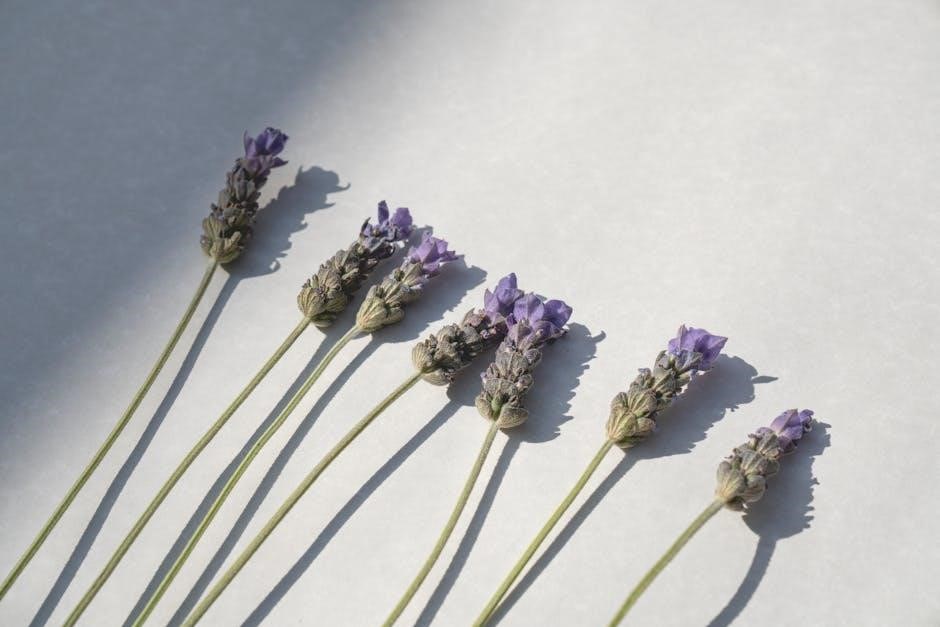
A Guide to Common Medicinal Herbs
Discover the diversity of medicinal herbs, from turmeric and ginger to echinacea and calendula․ Each offers unique health benefits, emphasizing natural wellness and safe, informed use․
Turmeric: Its Uses and Benefits
Turmeric, a vibrant yellow-orange spice, is renowned for its anti-inflammatory and antioxidant properties․ Its active compound, curcumin, aids in reducing inflammation and improving digestion․ Commonly used to alleviate joint pain and enhance immune function, turmeric is also valued for its potential in supporting brain health and heart wellness․ It can be consumed as a tea, added to meals, or taken in supplement form․ However, excessive consumption may interact with blood thinners, so moderation is key․ Always consult a healthcare provider before using turmeric for medicinal purposes, especially if on medication․ This natural remedy offers versatile health benefits when used responsibly․
Ginger: A Versatile Root for Health
Ginger, a versatile root, is celebrated for its medicinal properties and culinary uses․ It is renowned for alleviating nausea, whether from motion sickness, pregnancy, or chemotherapy․ Ginger also boasts anti-inflammatory properties, aiding in pain relief for muscle aches and arthritis․ Its digestive benefits help soothe upset stomachs and reduce bloating․ Available in fresh, dried, powdered, or extract forms, ginger is easily incorporated into teas, meals, or supplements․ While generally safe, excessive consumption may cause stomach discomfort or interact with blood thinners․ Consult a healthcare provider before using ginger medicinally, especially if on medication, to ensure safe and effective use․
Echinacea: The Immune-Boosting Herb
Echinacea, a widely recognized immune-boosting herb, is traditionally used to prevent and treat colds, flu, and infections․ Studies suggest it may reduce the severity and duration of respiratory illnesses․ Available in teas, capsules, and tinctures, Echinacea is believed to enhance immune function by stimulating white blood cell activity․ While generally safe, it may cause mild side effects like dizziness or allergic reactions, particularly in those allergic to sunflowers or daisies․ Consult a healthcare provider before using Echinacea, especially for long-term use or with other medications, as it may interact with certain drugs․ Its benefits and risks vary, making professional guidance essential for optimal use․
Calendula: Skin Health and Wound Healing
Calendula, a natural remedy, excels in promoting skin health and wound healing․ Its anti-inflammatory and antimicrobial properties make it effective for treating burns, cuts, eczema, and acne․ Often used in salves, creams, or teas, Calendula accelerates tissue repair and reduces infection risk․ It soothes sunburns and minor injuries, while its gentle nature suits sensitive skin․ For chronic wounds or severe burns, professional medical advice is recommended․ Allergic reactions are rare but possible, especially in those allergic to daisies․ Always test for sensitivity before use and consult a healthcare provider for prolonged or inappropriate applications to ensure safe and effective treatment․
Peppermint: Digestive Aid and Respiratory Relief
Peppermint is renowned for its dual benefits in digestion and respiratory health․ Its menthol content eases indigestion, bloating, and cramps by relaxing the stomach muscles․ It also alleviates symptoms of IBS and nausea․ Inhaling peppermint oil or tea can clear nasal congestion, offering relief from colds, sinusitis, and asthma․ Topical application of peppermint oil may ease headaches and muscle tension․ However, it can cause heartburn in some individuals․ Allergic reactions are uncommon but possible․ Consult a healthcare provider before using peppermint oil, especially for children or during pregnancy, to ensure safe usage and avoid potential interactions with medications․

Safety and Precautions with Medicinal Herbs
Herbal remedies offer benefits but require caution․ Potential risks include side effects, herb-drug interactions, and allergic reactions․ Ensure high-quality products and consult healthcare providers before use․
Potential Risks and Side Effects
While medicinal herbs offer numerous benefits, they can pose risks, including allergic reactions, side effects, and interactions with medications․ Certain herbs, such as yarrow or ginkgo, may thin blood or exacerbate conditions like diabetes․ Allergic reactions can range from mild rashes to severe anaphylaxis․ Additionally, the quality and potency of herbal products vary, potentially leading to unintended effects․ Natural does not always mean safe, as some herbs contain toxic compounds․ Pregnant women, children, and individuals with chronic illnesses are particularly vulnerable․ Always research thoroughly and consult a healthcare provider before using herbal remedies to minimize risks and ensure safe, effective use․
Herb-Drug Interactions: What You Need to Know
Herb-drug interactions can have serious health implications, as certain herbs may enhance or inhibit the effects of medications․ For example, St․ John’s Wort can reduce the effectiveness of antidepressants and blood thinners, while Ginkgo biloba may increase bleeding risk when combined with anticoagulants․ These interactions can lead to adverse effects, reduced therapeutic benefits, or even life-threatening complications․ People with chronic conditions, those taking multiple medications, and pregnant women are at higher risk․ Consulting a healthcare provider is essential to avoid potential dangers․ Always disclose herbal use to your doctor to ensure safe and effective treatment, as herb-drug interactions can significantly impact overall health outcomes․
Allergic Reactions and Contraindications
Allergic reactions to medicinal herbs can range from mild skin rashes to life-threatening anaphylaxis․ Certain herbs, such as ragweed or chamomile, are known allergens, especially for those sensitive to daisy-family plants․ Contraindications involve specific health conditions where herb use is unsafe, such as pregnancy or kidney disease․ For example, licorice root can worsen high blood pressure, while saw palmetto may interfere with hormone-sensitive cancers․ Consulting a healthcare provider is crucial to avoid adverse reactions․ Always review personal health history and current conditions before using herbal remedies to ensure safe and appropriate use․
Quality Control in Herbal Products
Quality control in herbal products is essential to ensure safety, efficacy, and consistency․ Many herbal supplements are not standardized, meaning their potency and purity can vary widely․ Contaminants, incorrect labeling, and adulteration are common issues․ Reputable manufacturers adhere to Good Manufacturing Practices (GMPs) and third-party testing by organizations like NSF International or ConsumerLab․com․ These tests verify the presence of listed ingredients and check for contaminants like heavy metals or pesticides․ Always look for products certified by trusted organizations to minimize risks․ Quality control ensures that herbal remedies are free from harmful substances and deliver the expected health benefits, making them safer for consumption․
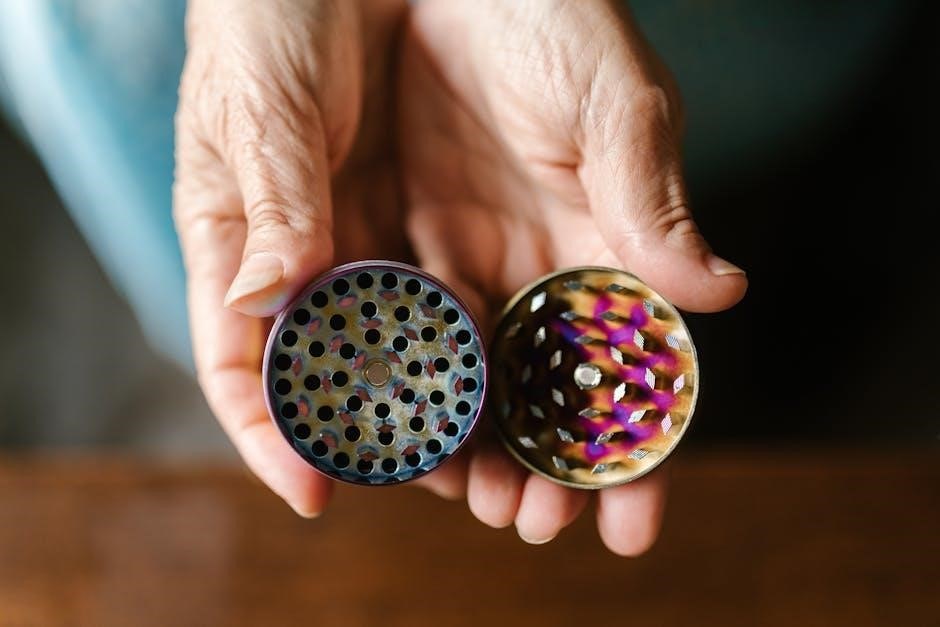
Making Your Own Herbal Remedies
Creating herbal remedies at home allows customization and avoids synthetic additives․ Use fresh, organic herbs to craft teas, tinctures, and salves for natural wellness solutions․
DIY Herbal Teas: Recipes and Benefits
Herbal teas are a simple yet effective way to harness the power of medicinal herbs․ Popular options include peppermint for digestion, chamomile for relaxation, and turmeric for inflammation․ To make a basic tea, steep 1-2 teaspoons of dried herbs in boiling water for 5-10 minutes․ Strain and enjoy hot or iced․ Ginger tea can aid nausea, while elderberry supports immunity․ Experiment with combinations like lemon balm and honey for a soothing blend․ Always use fresh, organic herbs for optimal benefits․ These teas offer natural wellness solutions and can be tailored to address specific health needs․
How to Make Herbal Tinctures at Home
Making herbal tinctures at home is a straightforward process that involves steeping herbs in a solvent like vodka or apple cider vinegar․ Start by filling a clean glass jar with fresh or dried herbs, leaving enough space for the liquid․ Pour the solvent over the herbs, ensuring they are completely submerged․ Seal the jar and store it in a dark place for 2-4 weeks, shaking daily․ After steeping, strain the mixture through a cheesecloth into a clean bottle․ Tinctures are potent, so use small doses (20-30 drops)․ Store in a cool, dark place for up to 5 years․ Always consult a healthcare provider before use․
Creating Herbal Salves for Skin Health
Herbal salves are topical remedies that combine the healing properties of herbs with carrier oils and beeswax․ To make a salve, infuse dried or fresh herbs in a carrier oil (like olive or coconut oil) for 2-4 weeks․ Strain the mixture, then melt beeswax and mix it with the herbal oil․ Pour into containers and let cool․ Common herbs for salves include calendula for skin repair, chamomile for soothing irritations, and plantain for wound healing․ These salves can moisturize, protect, and promote skin regeneration․ Always ensure the quality of ingredients and consult a healthcare provider before using, especially if you have sensitive skin or allergies․
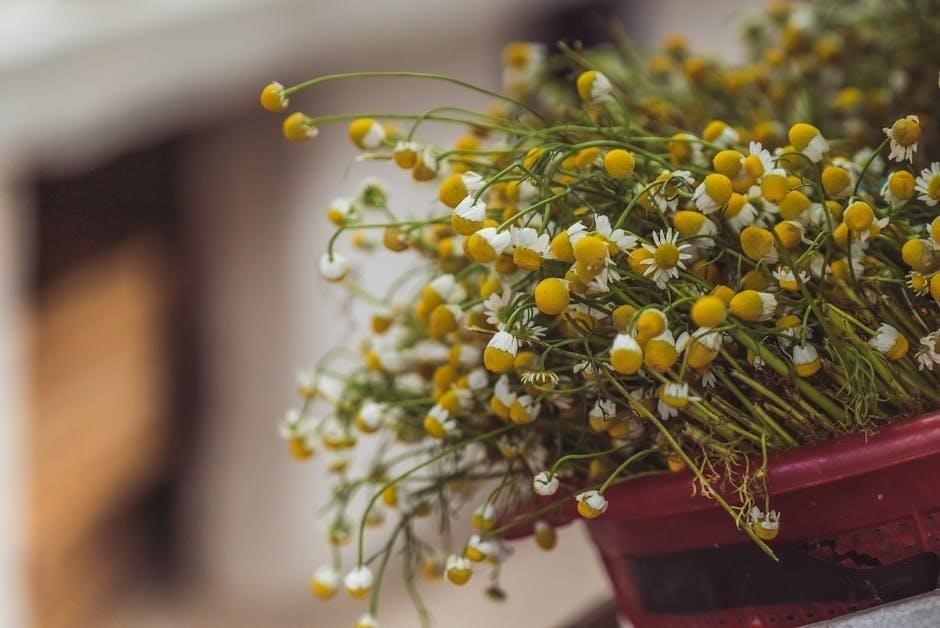
Consulting with a Healthcare Provider
Consulting a healthcare provider is essential before using medicinal herbs, especially for those with medical conditions or on medications․ They can provide personalized advice, ensure safety, and prevent harmful interactions․
When to Seek Professional Advice
Seek professional advice when using medicinal herbs, especially if you have chronic conditions, take medications, or are pregnant․ A healthcare provider can guide safe usage, prevent harmful interactions, and tailor remedies to your needs․ They ensure you avoid potential risks and maximize benefits․ Always disclose all supplements for comprehensive care․
Disclosing Herbal Use to Your Doctor
Always inform your healthcare provider about any herbal supplements you’re using․ This ensures safe treatment plans and avoids potential drug-herb interactions․ Be open about the types and dosages to receive personalized advice and prevent complications․ Open communication is key to effective and safe care․
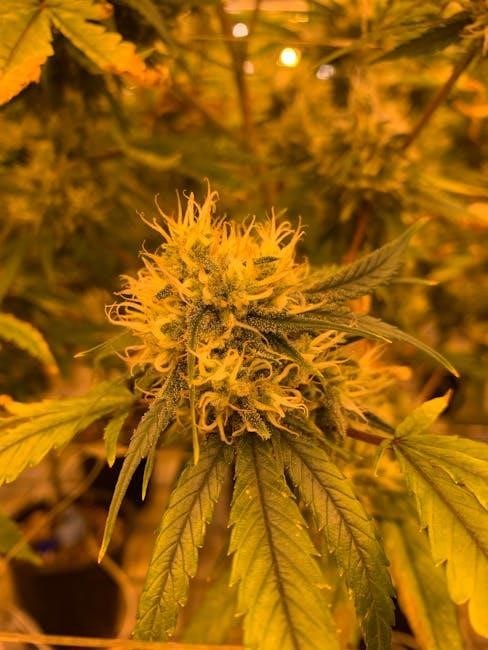
Resources for Further Learning
Explore recommended books like The Complete Medicinal Herbal, online databases such as NCCIH, and courses from Herbal Academy for comprehensive learning․
Recommended Books on Herbal Medicine
Holistic Herbal: A Safe and Practical Guide to Making and Using Herbal Remedies by David Hoffmann is a trusted resource for herbal enthusiasts․ The Complete Medicinal Herbal offers detailed profiles of over 1500 plants․ CRC Handbook of Medicinal Herbs by James A․ Duke provides scientific data on 800 species․ These books, along with Penelope Ody’s guide to growing and using herbs, offer comprehensive insights for both beginners and advanced practitioners․ They blend traditional knowledge with modern research, making them invaluable for understanding herbal medicine․
Online Databases and Reliable Websites
For credible information, visit the Memorial Sloan Kettering Cancer Center’s About Herbs database, managed by experts․ NCCIH’s Herbs at a Glance series offers fact sheets on various herbs․ Banyan Botanicals provides Ayurvedic insights, while Herbal Ella features an A-Z guide and DIY remedy tutorials․ These platforms ensure reliable, evidence-based content, essential for safe and effective herbal use․ They are valuable resources for both professionals and individuals seeking trusted herbal information․
Herbal Courses and Workshops
Explore herbal education through online courses and hands-on workshops․ Platforms like Banyan Botanicals offer Ayurvedic insights, while Herbal Ella provides DIY tutorials․ The Herbal Academy and HerbMentor feature comprehensive programs for all skill levels, from basics to advanced herbalism․ Workshops often cover topics like herb identification, remedy preparation, and safety practices․ These resources are ideal for those seeking structured learning and practical skills in medicinal herb use․ They are designed to empower individuals with knowledge and confidence in using herbs for health and wellness, making them invaluable for both beginners and experienced practitioners․
Medicinal herbs offer natural wellness solutions, blending tradition with modern science․ Their future lies in responsible use, education, and integration with healthcare for holistic health benefits․
The Future of Herbal Medicine
The future of herbal medicine is promising, with increasing scientific research validating traditional uses․ Advancements in technology and sustainability practices are expected to enhance production and accessibility․ Integration with conventional healthcare systems is anticipated, offering patients more holistic options․ Education and awareness campaigns will play a crucial role in promoting responsible use․ Additionally, the development of standardized regulations will ensure quality and safety․ As global interest in natural remedies grows, herbal medicine is poised to become a key component of modern healthcare, bridging ancient wisdom with contemporary innovation for a healthier tomorrow․ Collaboration between researchers, practitioners, and policymakers is essential to unlock its full potential․
Encouraging Responsible Use of Medicinal Herbs
Responsible use of medicinal herbs involves informed decision-making and professional guidance․ Always consult a healthcare provider before starting herbal remedies, especially if on medications or with pre-existing conditions․ Quality matters—choose products from reputable sources to ensure safety and efficacy․ Be aware of potential interactions and contraindications․ Start with small doses to monitor reactions and follow recommended guidelines․ Education and self-awareness are key to harnessing the benefits while minimizing risks․ By promoting mindful practices, we can integrate herbal medicine into a balanced lifestyle, respecting both tradition and scientific understanding for optimal health outcomes․